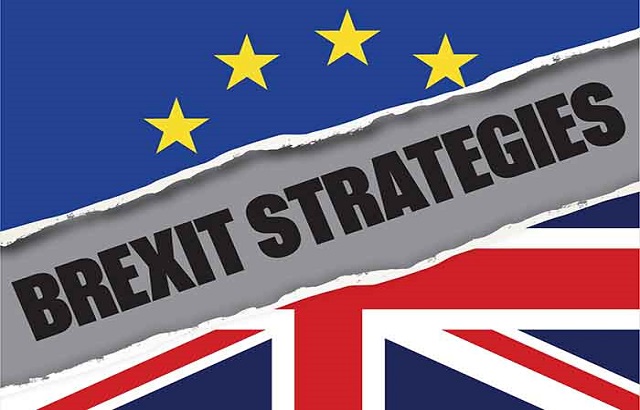The Brexit deal in December was not the end of the road for financial services.
There are still a couple of months to go before a final outcome for the industry.
This has caused upheaval at many firms; however, companies should have prepared for life without passporting in case the close relationship between the UK and the EU disappeared.
According to a memorandum of understanding, there will hopefully be an “equivalence” deal between the UK and EU financial services markets but this is far from guaranteed.
International Adviser spoke to Blevins Franks, Aisa Group and The Fry Group to discuss the lack of a financial services deal and the future of the UK market.
Changes
Some businesses have had to set up new entities to prepare for post-Brexit life.
Blevins Franks, for example. has created a Maltese company.
Blevins Franks Wealth Management Limited is now operational in all the firm’s core European countries with passporting permissions in place.
“This has involved considerable administrative upheaval across the whole business, including the movement of employment contracts across companies, and the opening of new corporate accounts, new stationary, etc” said Jason Porter, business development manager at Blevins Franks. “Our clients hopefully would not have noticed any changes or effects of the mass of work which has been going on in the background.
“That said, we have kept them fully appraised of the changes we were making, so they were not surprised by being written to on different headed paper, for instance.”
James Pearcy-Caldwell, chief executive of Aisa Group, said his firm used the Czech Republic and France as primary candidates for further regulatory approaches.
He said: “France is very useful and with regulation from both of the main regulators we offer an attractive ability to advise cross border between UK and France on all investment matters. We are passported under the Insurance Distribution Directive from the Czech Republic, have a basic investment licence already, and we await a final approval for a full securities licence there, which we have just been told is a few weeks away.
“We were unable to finalise this until post-Brexit due to regulatory issues connected with our licences from the UK having to be rescinded first.”
Aidan Bailey, chief technology officer at The Fry Group, added: “With approximately 100 clients based in the EEA, it’s been important to both keep them informed and have a plan in place to ensure that we can continue to look after them appropriately.
“Unfortunately, the brinkmanship and lack of clarity from the Brexit deal has left a number of grey areas. In the meantime, we’ve developed two plans, either or both of which we can put in force once we have firmer footing.”
Passporting
The key area for UK firms wanting to do business in the EU is passporting. Without it, it will cause major problems for UK advisers with international clients.
So, what will the lack of passporting do for businesses?
Porter said that, with the changes his firm made, it will do “very little”.
“Our biggest issue has been helping our clients with all the other external aspects of Brexit, including the new visa and residency permit requirements, as well as things like the closure of UK bank accounts and some investment managers walking away from investment management agreements with pension schemes and investment bonds,” he said.
The Fry Group’s Bailey said: “We never fully exploited passporting and so, with the plans that we have in place, we’ll be able to continue looking after our EEA clients once we know what the best plan or combination of plans is to use.”
Pearcy-Caldwell added: “I never really believed in the single market for investments. Having operated and lived overseas you tend to find most locals invest in local investment products for tax or familiarity reasons, with some trading in shares linked to UK and the US.
“Therefore, for residents you need to obtain local products in whatever country you operate in, for example France or Spain. Therefore, the only people really looking to do UK type products are expats.
“My conclusion, for some time, was that passporting from the UK, or into the UK, for IDD and Mifid at advice level was often targeting expat advice. Even setting up branches under passporting did not allow firms to obtain local products in different countries, e.g. France.
“Therefore, our new setup is the best of both worlds allowing us to continue to advise expats but also register for local products in key territories.”
Hopes for the deal
But, as with most things in life, there are conflicting views about what a deal between the UK and EU should look like.
Blevins Franks’ Porter said: “Passporting worked for both sides and led to tremendous developments in financial services across the EU. Equivalence is a very poor second choice, and may not be sufficient for many UK financial services firms to take the risk on either remaining in, or entering the EU market.
“Equivalence should be seen as a starting point – not the end. It would be good to see negotiations continue thereafter, with the long-term aim of getting as close to passporting as possible.”
Aisa Group’s Pearcy Caldwell added: “It is imperative that the UK does not accept rule taking in order to get a deal. Most advisers think many of the recent EU rules, parts of Mifid II for example, are of no benefit to clients, create high unnecessary administration and are frankly not pragmatic in the real world.
“As we have experience in several countries, we are able to say there is an entirely different emphasis in the UK based on client outcomes, rather than tick boxing within the EU to suggest you are doing the job correctly.
“I think the UK should continue with it’s client outcome philosophy and remove tiers of unnecessary, unpragmatic regulation that has no benefit to clients. I really believe that London is on such a scale compared to anywhere in the EU, then its only competitors are other worldwide hubs, and that is really what the focus should be on.
“Further, for business that is essential to London that is connected to the EU, most directors I talk to in London have already set up equivalent operations in the EU which remain owned by the London shareholders, and I see this as a spider web of influence that will be very difficult for any EU country to replicate.”
Future
Financial services made up 6.9% of the UK economy in 2019. In 2017, financial services provided 1.1 million UK jobs, 11.5% of the employment tax-take, and £29bn ($39.5bn, €32.6bn) of taxes in total.
Around 43% of UK financial services exports went to the EU, generating a £44bn surplus, with approximately 65% of this emanating from a UK base.
This shows how much the EU is worth to Britain.
Pearcy-Caldwell said: “Without doubt, as a group of companies with bases in the UK and the EU, I can testify that it is a lot easier to do business for financial services in the UK than the continent.
“This is not a language issue, as our local companies in the EU have local fluent speakers. No, this comes down to attitude towards entrepreneurial business and risk taking by the state. For the UK, in order to make Brexit a success, they are going to have to take more risk, encourage innovation, boost the entrepreneurial business, and within a few years this will show through regulation and tax policy.
“The EU is almost the complete opposite, everything is done by consultation, it is slow to react, it seeks to protect rather than take risk or be open to competition. As a person who actually lives in the EU, not the UK, I love countries in the EU for what they are, it almost a romantic place to live, and many people do not want to change that.
“On the other hand, the UK is all about change and Brexit will drive innovation. Concerns about loss of EU business are misplaced as clever people will ensure that business will be maintained through cross border structures, whilst the UK’s real competitors are not on the continent; it is these battles that will determine the future of UK financial services.”
Bailey added that it is “far too early to say” about the future of the UK advice market and it “will depend on whether a deal emerges which is specific to financial services and the extent to which it stretches”.
“A universal declaration of equivalence will be a big step in the right direction in terms of maintaining the status quo,” he said. “Without that UK financial services risks being marginalised. In essence, the ‘deal’ was done but there are still loose ends in relation to financial services which need some attention.”








